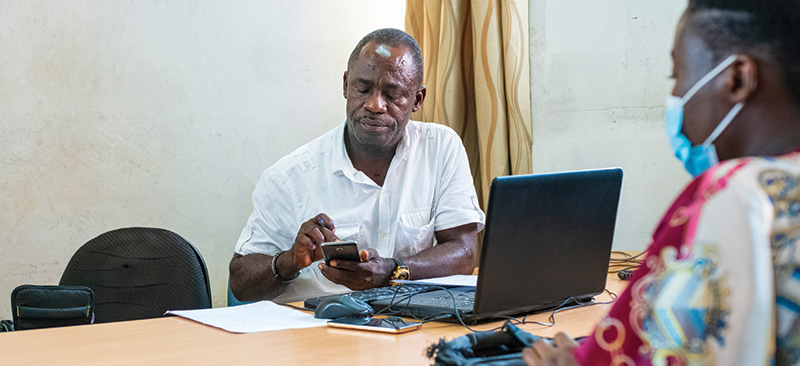
MSC conducted research to assess the current state of mobile money agents in Kenya, Côte d’Ivoire, and Mozambique. We evaluated their satisfaction levels, challenges, opportunities, and the COVID-19 pandemic’s impact.
MSC conceived and designed the research, coordinated the team across three countries, and conducted 80 key informant interviews in each country to collect data on agent network growth and sustainability. We also developed in-country reports on mobile money agents’ states. MSC developed a report to identify strategies to sustain and expand mobile money agent networks in Kenya, Côte d’Ivoire, and Mozambique. We also provided recommendations to ensure their long-term viability.
GSMA published the findings and key recommendations to support the mobile money industry across the three markets.
GSMA Mobile for Development Foundation, Inc. commissioned this project.

MSC ran a diagnostic study to highlight the challenges and constraints that DFS (Digital Financial Service) providers face when they expand agent networks in rural areas. MSC conducted the study to identify the best-performing ANM (Agent Network Management) models in rural areas of Côte d’Ivoire. The study also sought to identify potential policy and regulation adjustments to overcome the limitations of rural agents’ recruitment and viability. The study integrated a gender lens to understand women’s representation among rural agents and the limitations they may face when they start and conduct an agent business. The study also sought to understand their relationship with agents and how easily these women can access them.
The study involved a desk review, interviews with a sample of ANMs of different categories, and analysis and comparison of their business models and operations. It also estimated the percentage of female agents and customers, analyzed the regulatory and taxation regime’s impact on the agent business’s expansion and viability, and its impact on women.
The study identified challenges around regulatory constraints, inappropriate taxation modalities, and a lack of financial access for agents. It recommended granular public data’s development to create a national strategy that will improve coverage. The commission structure for agents and ANMs was also a concern, as it might not be sustainable for agent businesses in rural areas. The study underscored the need for responsible and protective agents to ensure consumer protection, especially in rural areas where they play a crucial role in customer transactions and complaints.
CGAP commissioned this project.
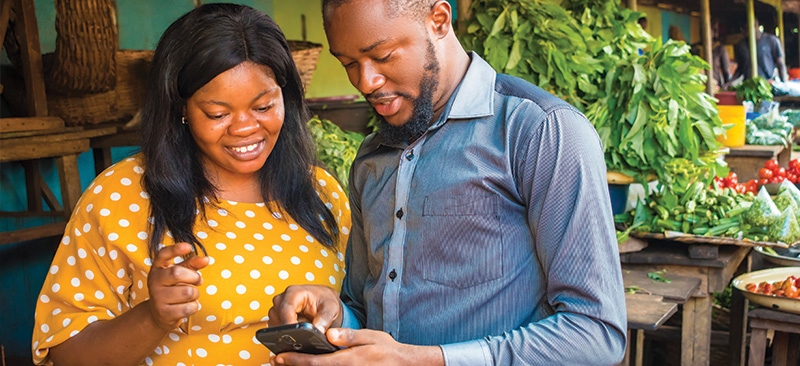
Kaduna State envisaged the creation of an interoperable, ubiquitous digital payments ecosystem by 2020. MSC was commissioned to conduct the feasibility study to explore collaborations and partnerships on behalf of Kaduna State. The study also sought to reflect on potential business cases with private sector partners, which included payment service banks.
The MSC team conducted a digital readiness assessment to build contextual knowledge on the state of the digital financial ecosystem, payments, and digital governance infrastructure. We built contextual knowledge on best practices for global, national, regional, and local digital payments and governance infrastructure. It helped us formulate the vision for an interoperable, statewide digital payment infrastructure.
As a result, MSC developed the blueprint for an interoperable, state-wide digital payment infrastructure and formulated a pilot plan and implementation roadmap for the way forward. 5.2 million of the 9 million residents of the state (about 60 percent) are now enrolled in the digital ID database. The state has started to issue a readable multi-functional digital residency card that can be used for interoperable cash-in cash-out (CICO) transactions. Close cooperation between the federal government (National Identity Management Commission) and the state through an MoU (Memorandum of Understanding) enabled this. The MoU enabled an interface to the national identity management database.
The Bill & Melinda Gates Foundation commissioned this project on behalf of Kaduna state.
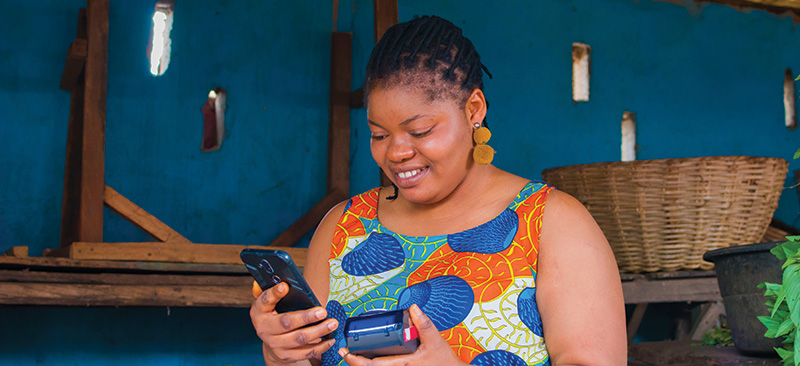
Financial Sector Deepening Zambia (FSD Zambia) contracted MSC to conduct a digital readiness assessment (DRA) on behalf of the Smart Zambia Institute. The Smart Zambia Institute is also known as the Electronic Government (e-Gov). It is a division in the Office of the President that manages and promotes electronic government services and processes. It also facilitates access to e-Gov services to improve service delivery and enhance citizens’ access to government service, coordination of e-Gov, and information and communication technology-related matters in public bodies.
The DRA assessed policies and regulations to promote digital G2P adoption. The MSC team worked with key policy, regulatory, and legal bodies throughout the DRA to collect and analyze data from diverse stakeholders. We conducted the assessment across multiple phases, which included desk research, expert interviews, multi-stakeholder consultative workshops, reporting, and presentation.
The DRA involved a comprehensive G2P assessment of all benefit programs countrywide. It developed a set of recommendations to digitize G2P programs and catalyze financial inclusion in the country. The assessment led to the drafting of high-level operational guidelines. These guidelines focused on the design of a digital G2P and P2G mechanism for Zambia’s Farmer Input Support Program (FISP), FISP weather insurance, social security payments, and school fees.
The DRA report helped the government of Zambia prioritize solutions for digitized G2P payments and create a digital transformation roadmap for the solutions.
FSD Zambia commissioned the project.
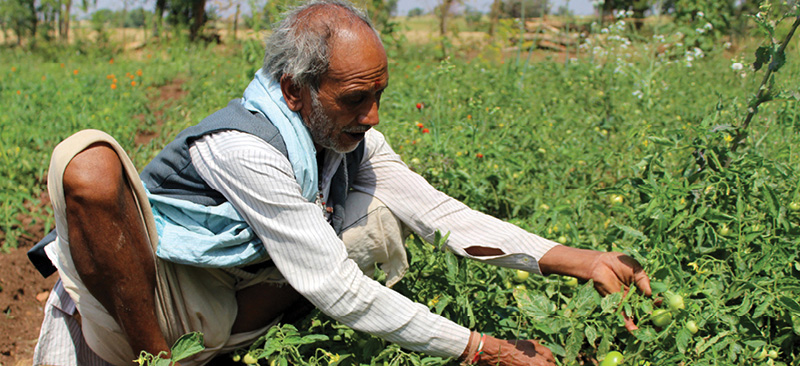
Under the JSPVAT initiative, MSC engaged with 27 farmer producer companies (FPCs) involved in agriculture and livestock in India’s Bihar state. The project’s primary objective was to elevate the quality of services available to smallholder farmers and facilitate their economic transformation. JSPVAT started in 2020 to support JEEViKA—the Bihar state government’s rural livelihoods project.
Under JSPVAT, we sought to bolster the financial viability and self-sustainability of these FPCs, which would empower them to cater to the needs of marginal female farmers statewide. MSC offered strategic and operational consulting services to support JEEViKA, a State Rural Livelihoods Mission in the state. We provided technical expertise and enhanced operational efficiencies to increase the profitability of agriculture for Bihar’s farmers.
MSC played a crucial role to establish an overarching brand called “Green Delights” and associated stores for JEEViKA FPCs. This initiative empowered rural women to tap into premium markets through effective branding, improved packaging, and FPC-owned modern retail outlets.
So far, MSC has successfully facilitated the linkages of more than 36,000 metric tons of various commodities and 8,000 metric tons of agricultural inputs with 22 different agri-input market players. Our efforts benefited Bihar’s smallholder farmers.
The Bill & Melinda Gates Foundation commissioned the project.
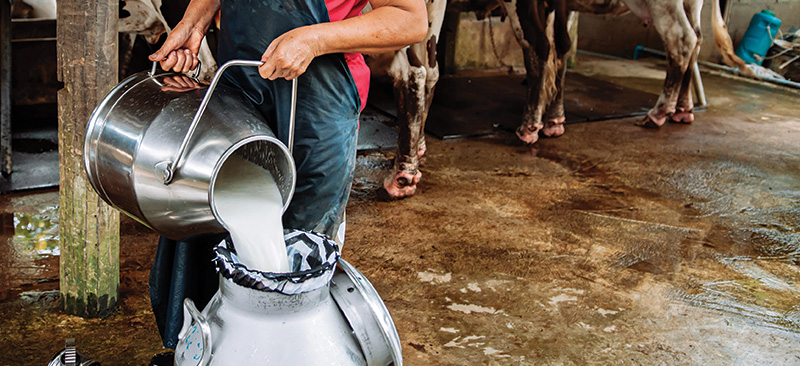
MSC provided technical assistance to Bank Sinarmas to develop a finance product on the beef value chain for cattle farmers in Tuban, East Java. MSC conducted the product’s pre-pilot review, developed operational processes, created a credit risk-monitoring tool, and provided recommendations for scale-up.
Bank Sinarmas launched the product in December 2016. By April 2017, the product had successfully disbursed 56 loans worth IDR 4.24 billion (USD 318,000) to 49 farmers in Tuban Regency.
At the end of 2017, Bank Sinarmas had plans to disburse 346 loans worth IDR 26.3 billion (USD 1.9 million). The bank also intended to offer a similar product in other geographies.
The Australia Indonesia Partnership for Rural Economic Development program (AIP-Rural) commissioned the assignment through the Strengthening Agricultural Finance in Rural Areas (SAFIRA) project. The SAFIRA project ran for three years and received support from a rural economic development partnership between the governments of Indonesia and Australia.





